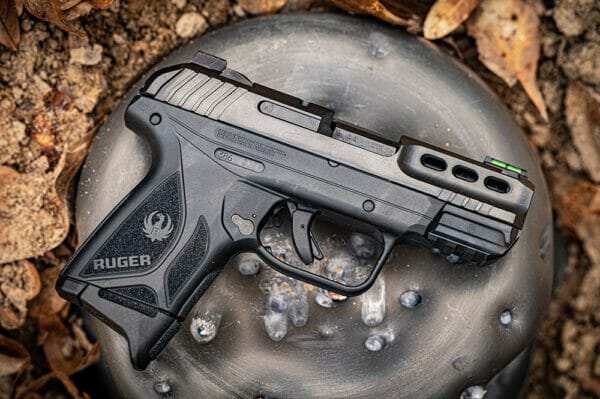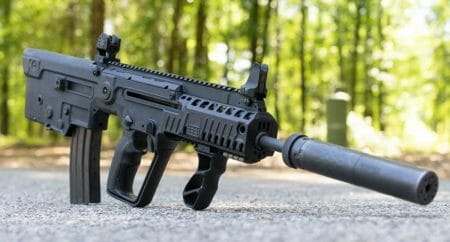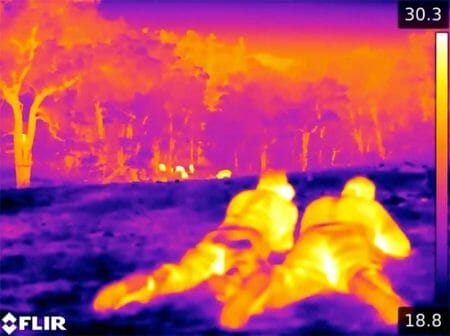
A three-judge panel from the United States Court of Appeals for the Third Circuit knocked down a challenge to New Jersey’s concealed carry permit regime by reinterpreting the Supreme Court’s Bruen opinion.
The Second Amendment Foundation (SAF), Firearms Policy Coalition (FPC), Coalition of New Jersey Firearms Owners (CNJFO), and the New Jersey Second Amendment Society (NJSAS) sued the state over its concealed carry permit regime that it passed after the Supreme Court issued its Bruen decision. Bruen said that “may issue” regimes are unconstitutional. It noted that the courts could not rely on “interest balancing” to decide a gun is unconstitutional. The Supreme Court stated that courts could only use the original text of the Second Amendment, along with the nation’s history and traditions of firearms regulations, to determine the constitutionality of a law.
A Bruen analysis starts with the original text of the Second Amendment. The named plaintiff, Randy Koons, is a member of “the people.” The courts have held that “the people” are at least American citizens who have reached the age of majority. Currently, the age of the majority is 18 years old. Concealed carry guns are bearable arms in common use, so they are protected. Since the conduct of Mr. Koons is covered by the plain text of the Second Amendment, it is presumably constitutional.
The second step of the Bruen analysis involves examining the historical tradition of gun law from the founding era. This analysis is done by presenting analogues. New Jersey could not show an analogue for such places such as libraries, casinos, stadiums, amusement parks, zoos, and museums. The court decided to take what they called a “flexible” Bruen approach.
The panel ruled these places could be considered “sensitive areas” because libraries have an educational mission and were used as schools and courts throughout the country’s history. They said museums could be regarded as “sensitive” because children visit them. They said bars and restaurants were “sensitive” because firearms could be subject to misuse when mixed with alcohol. The court did cite two historical analogues for the ban. One was a 1852 New Mexico law, and the other was a 1879 New Orleans law, both far removed from the founding era. Other laws cited were pre-revolutionary laws.
The three-judge panel also called out the Supreme Court for stripping interest balancing, known as “means-end scrutiny.” The Third Circuit panel said that they shouldn’t be bound by “legislatures in bygone eras,” which directly contradicts what the Supreme Court noted in Bruen.
SCOTUS wrote: “Instead of that [means-end] approach, we adopt the text, history, and tradition test that we employed in Heller and McDonald. … Heller’s methodology centered on constitutional text and history. It did not support a second step that applied means-end scrutiny.”
The panel wrote: “By imposing permitting requirements and restricting when and where firearms can be carried, our democratically elected leaders acknowledge that there are tradeoffs between the protections of the Second Amendment and fellow citizens’ enjoyment of functional government and a host of other constitutionally enshrined rights, including the right to speak, worship, protest, and vote. Those leaders, informed by local needs, modern circumstances, and the desires of the People today, work to achieve a balance of these interests.”
Although much of the law was upheld, the three-judge panel did strike down a few sections of the legislation. They said the requirement for liability insurance, paying into the Victims of Crime Compensation Office (VCCO), bans on guns in private vehicles, and on private property without the property owner’s express consent was unconstitutional.
The plaintiffs are expected to request an en banc hearing for the case, in which the full Third Circuit would hear the suit. If an en banc hearing is granted, the panel’s decision would be vacated. The plaintiffs could also skip an en banc request and file for a writ of certiorari with the Supreme Court.
ATF Classifies Unfinished P365 Fire Control Unit as a Firearm
DOJ Moves to Join Fight Against Illinois’s Assault Weapon Bans
About John Crump
Mr. Crump is an NRA instructor and a constitutional activist. John has written about firearms, interviewed people from all walks of life, and on the Constitution. John lives in Northern Virginia with his wife and sons, follow him on X at @crumpyss, or at www.crumpy.com.







At some point the SC needs to decide whether or not they meant what they said in Heller through to Bruen and even in Rahimi. If they did mean it, then they need to spank and admonish the courts who are completely ignoring their rulings and making fools out of them. Did Gorsuch and Kavanaugh mean what they recently wrote in a decision overturning a lower court order regarding Trump’s Executive powers that courts were not free to ignore what they decided? Or does that only apply when it’s an Executive Branch case?
Is anyone surprised?
You can always count on the leftist blue to twist and turn things into something other than what they really are or was said.
Make OreGONEIstan, OreGUN again.
these scumbags in black need a good canning then alcohol bath with a match to finish